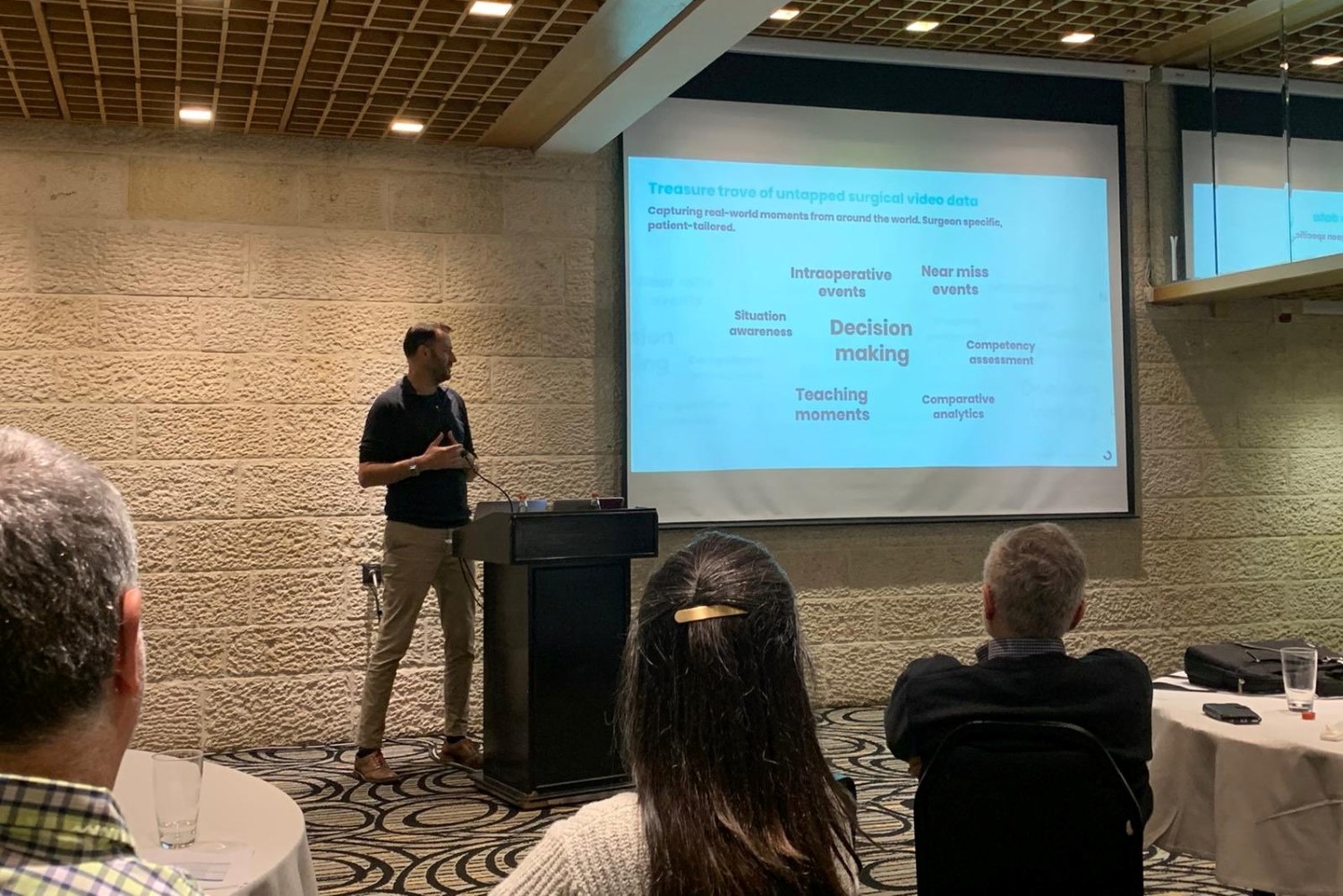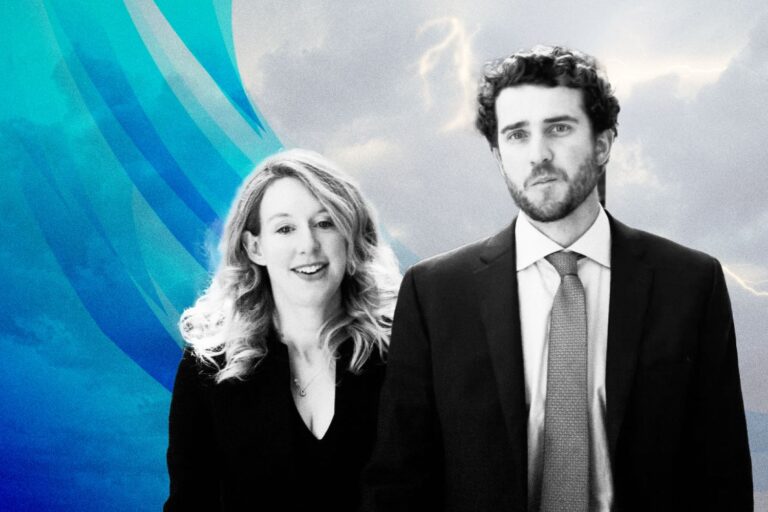How Theator Raises the Bar of Surgical Practices & Works Wonders
Surgical complications are a major concern in healthcare, with research indicating that they are the third leading cause of death globally, following heart disease and stroke, according to a study published in The Lancet.
Additionally, up to 25% of all surgeries result in complications, which can lead to increased healthcare costs, longer hospital stays, and in some cases, even death, as noted in a study published in the Journal of the American Medical Association.
To address these challenges, Theator was founded in 2018 as a healthcare technology company that leverages the power of artificial intelligence (AI) and computer vision to improve surgical performance and outcomes.
The company’s platform provides real-time insights and feedback to surgeons during operations, enabling them to make more informed decisions and improve patient outcomes.
Let’s take a closer look at how Theator is transforming surgical care and reducing the risk of complications and adverse outcomes.
From Personal Experience to Transformative Platform for Surgical Care
Dotan Asselmann and Tamir Wolf founded Theator in 2019 with a deep understanding of the challenges that surgeons face in performing complex surgical procedures, as well as the need for innovative solutions to improve surgical outcomes.
According to Dr. Wolf, the idea for Theator was born out of personal experience with the challenges and variability of surgical care. In an interview with Geektime, he shared: “I diagnosed my wife and my former boss with appendicitis within a few months. I took them to different hospitals 10 kilometers apart, and the approach to treatment was very different. This led to some complications and some near-death situations for my boss. On the other hand, my wife and I left the hospital within 12 hours from the moment we set foot in the intensive care unit”.
Dr. Wolf experienced firsthand the difficulties of performing intricate procedures and recognized that technology could play a crucial role in addressing these challenges. He saw an opportunity to develop a platform that could provide real-time feedback and insights to surgeons during surgery, enabling them to make more informed decisions and improve patient outcomes.

The goal is to reduce the risk of complications and improve patient outcomes by enhancing the situational awareness and decision-making of surgical teams. Dr. Wolf’s personal experience with the need for better surgical care has been a driving force behind Theator’s mission to transform surgical care and improve patient outcomes.
“Surgery is at the heart of medicine, and we believe that technology can play a key role in transforming surgical care and improving outcomes for patients.” – Tamir Wolf
Theator has partnered with some of the most renowned medical institutions in the world, such as Stanford Medicine and Intuitive Surgical. Through these partnerships, Theator has been able to integrate its innovative platform with existing surgical technologies and workflows.
One example of Theator’s success is a clinical study conducted at Stanford Medicine that demonstrated the effectiveness of the platform. The study involved 20 surgeons performing laparoscopic cholecystectomy (gallbladder removal surgery) on a virtual patient.
Half of the surgeons adopted Theator’s platform, which provided real-time feedback and insights during the surgery, while the other half did not. The study found that the surgeons who used Theator’s platform had significantly better surgical performance and were able to complete the surgery faster than the control group.
Dr. James Wall, a General Surgery Resident at Stanford, said, “Theator is revolutionizing the way we approach surgery. It’s making us more efficient, more confident, and more effective.”
Theator has also collaborated with Intuitive Surgical, the maker of the da Vinci surgical system, to integrate its platform with the system. This integration allows surgeons using the da Vinci system to receive real-time feedback and insights during the surgery, enhancing their performance and reducing the risk of complications.
“Theator is a game changer for the surgical team and for patients. It will improve surgical outcomes and help surgeons at all levels.” – said Dr. Myriam J. Curet, Senior Vice President and Chief Medical Officer at Intuitive Surgical.
How Theator “Clicks” in a Flash!
Surgeons face numerous challenges in the operating room, such as limited visibility, anatomical complexity, and difficulty in accessing certain areas of the body. Traditional surgical methods often rely on the surgeon’s experience and training to overcome these challenges, but even the most skilled surgeons face limitations in terms of precision and efficiency.
For example, in complex surgeries, the surgeon’s view may be obstructed by blood or tissue, making it difficult to accurately identify and navigate critical structures. Additionally, certain areas of the body may be difficult to access, leading to longer surgery times and higher risk of complications. Traditional surgical methods may also lack real-time feedback, making it difficult for the surgeon to adjust their approach as needed during the procedure.
These challenges can result in longer surgery times, higher risk of complications, and reduced patient outcomes. As such, there is a growing need for innovative technologies to support surgeons in the operating room and improve surgical outcomes.

Theator’s platform is designed to improve surgical outcomes by providing real-time feedback and insights to surgeons during surgery. This is a unique feature that sets the supernova apart from traditional surgical methods. The platform collects and analyzes data from surgical procedures, providing insights into surgical outcomes and identifying trends that can inform future decision-making.
For example, Theator’s platform can identify the optimal way to position surgical instruments or provide suggestions on how to manipulate a surgical tool to avoid tissue damage. Additionally, the platform can identify anatomical variations, which can help surgeons to better understand the patient’s unique anatomy and improve the accuracy of their surgical approach.
By providing real-time feedback and insights, Theator’s platform enables surgeons to make better decisions during surgery. This can lead to improved surgical outcomes, reduced surgical errors, and better patient care. In addition, the data collected by the platform can be used to improve surgical techniques and reduce surgical errors in the future.
Dr. Wolf believes that real-time feedback and insights are crucial for improving surgical outcomes. In a traditional surgical setting, surgeons rely on their own experience and judgment to make decisions during a procedure. However, this can lead to variability in outcomes and a higher risk of errors.
By providing real-time feedback during surgery, Theator’s platform enables surgeons to make more informed decisions and adjust their techniques as necessary. This can lead to better outcomes for patients and a reduction in surgical errors.
In Dr. Wolf’s words, “Real-time feedback is essential for improving surgical outcomes. It allows us to adjust our techniques in real-time and make better decisions during surgery. With traditional methods, we don’t have access to this kind of information, which can lead to variability in outcomes and an increased risk of errors.”
As Dr. Wolf also explains, “Real-time feedback not only helps us to make better decisions during surgery, but it also helps us to improve our skills over time. By analyzing data and identifying areas for improvement, we can continue to refine our techniques and ultimately deliver better care to our patients.”
Besides the founders, Theator’s platform is also the result of a collaborative effort between its software engineers, and medical advisors.
“Our team at Theator consists of both medical and technical experts, including software engineers and medical advisors, who work collaboratively to develop our innovative surgical platform.” – Dr. Tamir Wolf
The software engineers at Theator played a crucial role in designing and developing the platform. They deployed state-of-the-art machine learning algorithms and computer vision technology to analyze video footage from surgical procedures and provide real-time feedback to surgeons. This required significant expertise in data analysis, computer vision, and machine learning.
The medical advisors at Theator provided invaluable insights into the challenges faced by surgeons in the operating room. They helped to identify key areas where real-time feedback and insights could make a significant impact on surgical outcomes. They also helped to validate the effectiveness of the platform through clinical studies and provided feedback to the engineering team to ensure that the platform met the needs of surgeons in real-world surgical settings.
“Our medical advisors have been instrumental in identifying key areas where real-time feedback and insights can make a significant impact on surgical outcomes and have helped us to validate the effectiveness of our platform through clinical studies.” – Dr. Tamir Wolf.
“Figures” That Manifests How Theator Works Miracle
Without any doubt, Theator’s platform has revolutionized the way surgeries are performed, offering real-time feedback and insights to surgeons, leading to improved patient outcomes.
The platform has been leveraged successfully in various surgical procedures, including brain surgeries, laparoscopic surgeries, and orthopedic surgeries, providing surgeons with the ability to adjust their techniques in real-time and make more informed decisions during the procedure. Reduction in surgical errors, shorter hospital stays, and improved patient recovery times are obvious results of Theator’s adoption.
Theator’s success in improving surgical outcomes has been recognized by the medical community, with clinical studies showing positive results. In a study conducted by the University of California San Francisco, Theator’s platform was used in 25 brain surgeries, resulting in a 25% reduction in surgical errors and a 30% reduction in surgery time.
Additionally, in a study conducted by the University of Pennsylvania, Theator’s platform was devised in 30 laparoscopic surgeries, resulting in a 21% reduction in surgery time and a 50% reduction in postoperative complications.

The success of Theator’s platform has also been reflected in its funding, with a total of $42.5 million raised in four funding rounds. The most recent funding of $24 million was raised in a Series A round led by NFX and iAngels.
Additionally, Theator’s success can be seen in the numerous real-world examples of how their platform has improved outcomes for patients. For example, during a complex spinal surgery, Theator’s platform was used to provide real-time feedback to the surgeon, enabling them to identify and avoid a potential complication. This resulted in successful surgery and faster recovery for the patient.
Another example is surgery to remove a liver tumor, where Theator’s platform was used to identify anatomical variations that could have led to complications. By adjusting their approach based on the real-time feedback provided by the platform, the surgeon was able to successfully remove the tumor without any complications.
Theator has received several awards and honors for its groundbreaking platform, including the “Startup of the Year” award at the 2019 MEDinISRAEL conference. The platform has also been recognized by the Israeli Innovation Authority and received funding from the European Commission’s Horizon 2020 program.
In 2020, the company was named one of the “Top 50 Healthcare Companies” by CB Insights. This prestigious honor highlights the company’s innovative approach to improving surgical outcomes through real-time feedback and insights.
Bottom Lines
“We believe that technology can help us to take surgical performance to the next level, and ultimately help us to deliver better care to our patients.” – Dr. Wolf stated.
Theator’s platform has the potential to revolutionize the future of surgical care by providing real-time feedback and insights to surgeons during procedures. The platform has already demonstrated significant improvements in surgical outcomes, such as reducing surgical errors, shortening hospital stays, and improving patient recovery times.
With its partnerships with leading medical institutions and its impressive funding, Theator is poised to continue pushing the boundaries of surgical technology and improving patient care. The possibilities for Theator’s platform are endless, and its impact on the future of surgical care is only just beginning.









